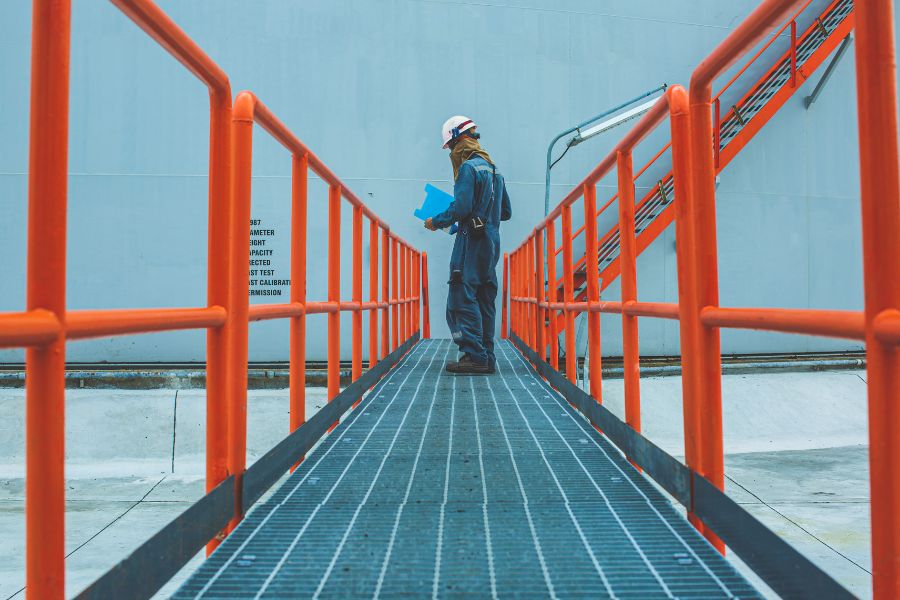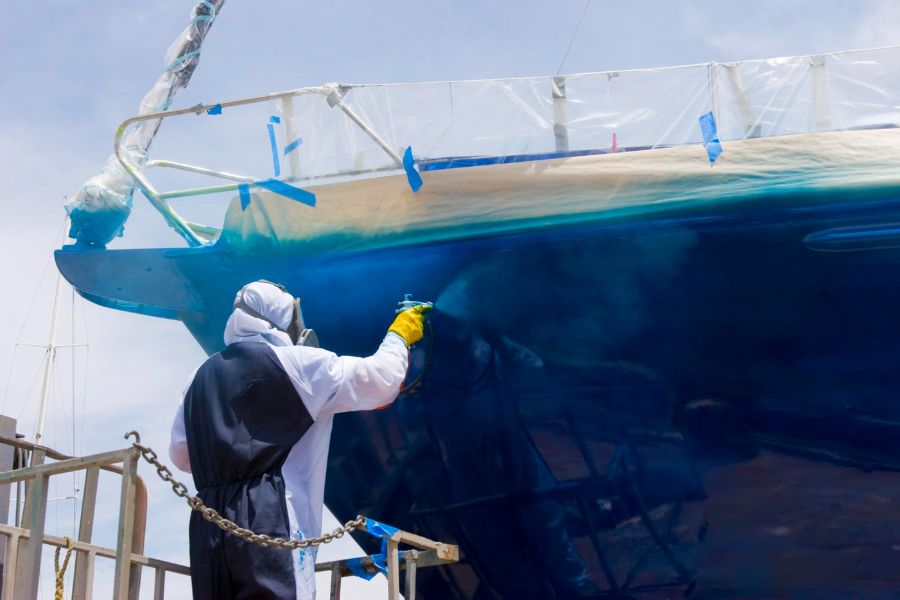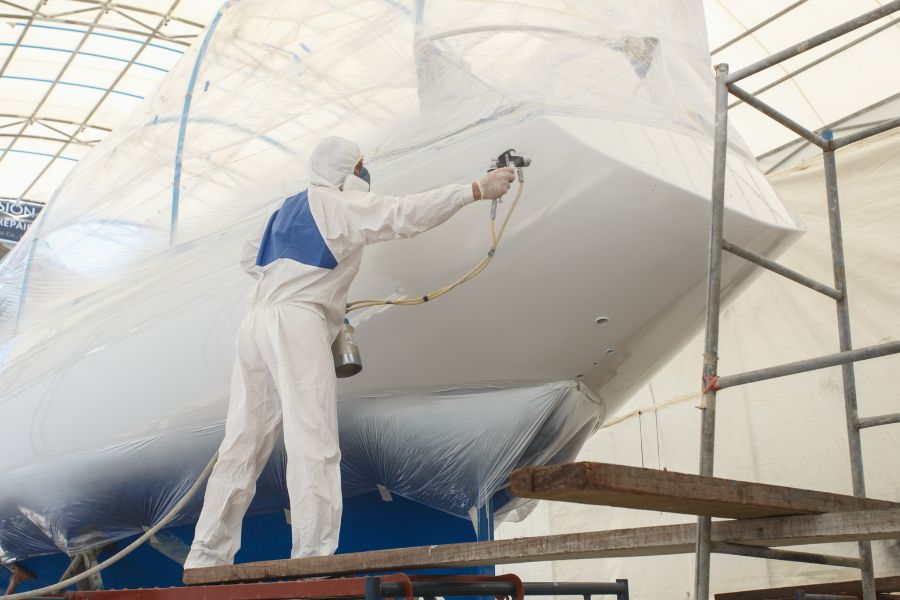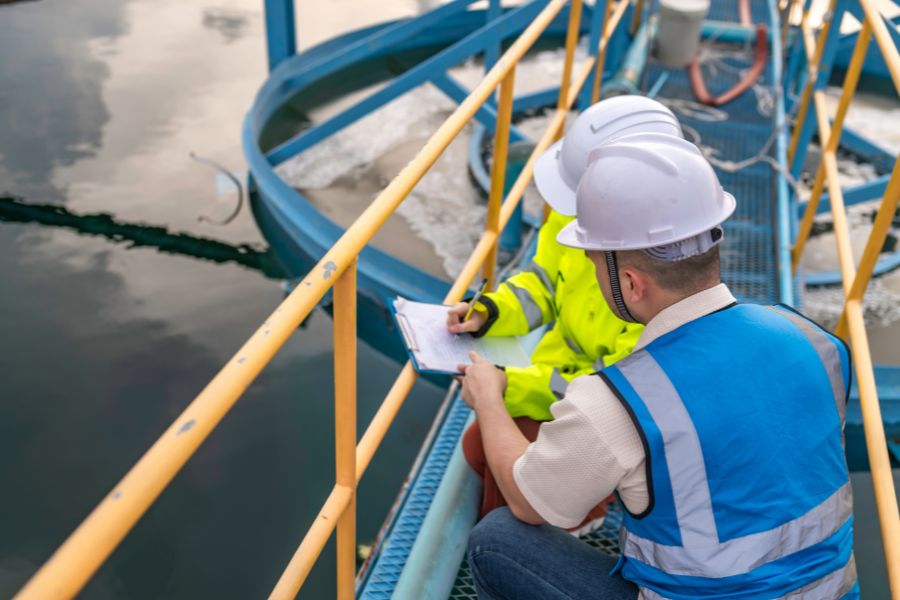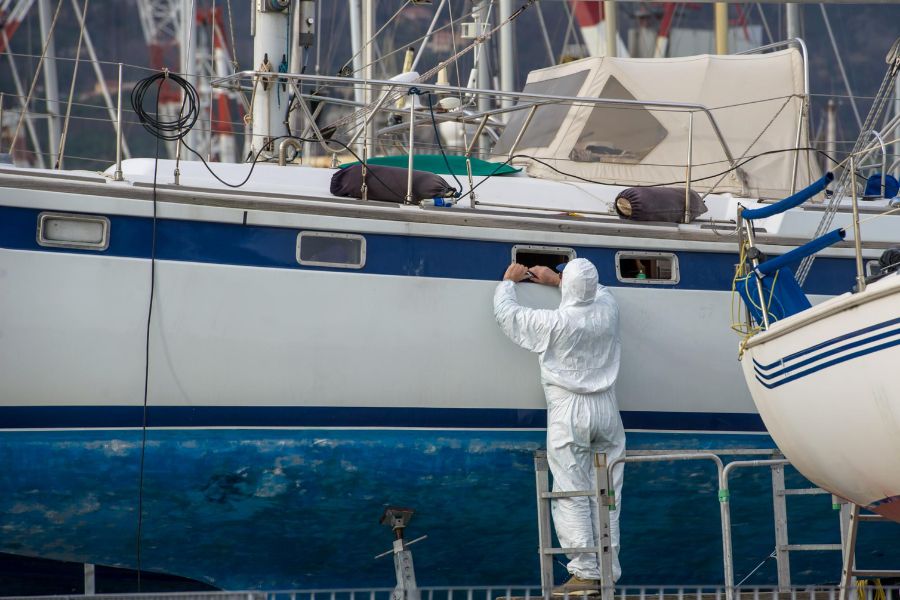Exploring the World of Marine Coatings: Protecting Our Oceans’ Assets
Introduction

Marine environments present formidable challenges to the longevity and integrity of structures and assets due to their constant exposure to harsh elements such as saltwater, UV radiation, and abrasion. In this article, we delve into the fascinating world of marine coating, examining their definition, importance in protecting marine assets, and crucial role in preventing corrosion.
Definition of Marine Coating
Marine coating are specialized protective layers applied to various marine structures and assets to safeguard them against corrosion, fouling, and other forms of degradation caused by exposure to seawater and environmental factors. These coatings are tailor-made to withstand the unique challenges posed by the marine environment, offering superior durability and protection.
Importance of Marine Coatings in Protecting Marine Assets
The significance of marine coating cannot be overstated in preserving the integrity and longevity of marine assets. Vessels, offshore platforms, bridges, piers, and other marine structures face constant exposure to corrosive elements present in seawater, leading to rapid deterioration if left unprotected.coating act as a barrier, shielding these assets from corrosion, fouling, and abrasion, thereby extending their service life and reducing maintenance costs.
Overview of the Role of Marine Coatings in Corrosion Prevention
Corrosion is a pervasive issue in marine environments, posing a significant threat to the structural integrity and safety of marine assets. Marine coating play a crucial role in corrosion prevention by forming a protective barrier between the substrate and corrosive elements present in seawater. By inhibiting the penetration of moisture and corrosive agents, these coatings effectively mitigate the risk of corrosion, ensuring the long-term performance of marine structures.
Marine Coating Specifications
Standards and Regulations Governing Marine Coatings
The formulation and application of marine coating are governed by a set of standards and regulations established by regulatory bodies and industry organizations. These standards outline the requirements for coating performance, environmental impact, and safety compliance. Organizations such as the International Maritime Organization (IMO) and the American Society for Testing and Materials (ASTM) develop standards specific to marine coating to ensure their effectiveness and adherence to quality and safety guidelines.
Key Performance Criteria for Marine Coating
When selecting marine coating, several key performance criteria must be considered to ensure optimal protection and durability:
Corrosion Resistance: The ability of the coating to withstand corrosion and degradation in marine environments.
Adhesion: The strength of the bond between the coating and the substrate, ensuring long-lasting protection.
Abrasion Resistance: Resistance to wear and abrasion caused by waves, currents, and marine debris.
UV Resistance: Protection against UV radiation, which can cause degradation and fading of coatings.
Chemical Resistance: Resistance to chemical exposure from seawater, pollutants, and cleaning agents.
Flexibility: The ability of the coating to accommodate substrate movement without cracking or delamination.
Fouling Resistance: Prevention of marine fouling, such as barnacles and algae, which can compromise performance and increase drag.
Factors Influencing the Selection of Appropriate Coatings
The selection of the most suitable marine coating depends on various factors, including:
Substrate Material: Different substrates, such as steel, aluminum, concrete, and fiberglass, require specific coatings tailored to their properties and surface conditions.
Environmental Conditions: Consideration of factors such as water temperature, salinity, exposure to sunlight, and presence of pollutants.
Application Method: Determination of the most appropriate application method, whether spray, brush, or roller, based on the project requirements and site conditions.
Maintenance Requirements: Evaluation of the ease of maintenance and the need for recoating or touch-ups over time.
Regulatory Compliance: Ensuring compliance with relevant standards and regulations governing marine coating to meet legal and environmental obligations.
Coating Inspection Procedure
Importance of Inspection in Ensuring Coating Effectiveness
Marine coating are vital for protecting structures from corrosion and fouling. However, their effectiveness depends on proper application and maintenance. Inspection ensures that coatings adhere to standards, preventing premature failures and maximizing their lifespan.
Common Inspection Techniques and Methodologies
Visual Inspection: Examining coatings for cracks, bubbles, or unevenness.
Thickness Measurement: Utilizing tools like ultrasonic gauges to measure coating thickness.
Adhesion Testing: Assessing the bond between the coating and the substrate.
Environmental Testing: Evaluating coatings’ performance under simulated marine conditions.
Challenges and Considerations in Coating Inspection
Access Constraints: Inspecting coatings on underwater structures requires specialized equipment and expertise.
Surface Preparation: Properly preparing surfaces before coating application is crucial for adhesion and longevity.
Environmental Factors: Weather conditions and temperature can affect coating application and curing processes.
Coatings for Marine Applications
Types of Marine Structures and Surfaces Requiring Coatings
Ships and Vessels: Coatings protect hulls, decks, and internal components from corrosion and biofouling.
Offshore Platforms: Critical for safeguarding offshore structures against corrosion in harsh marine environments.
Ports and Harbors: Coatings preserve infrastructure such as docks, pilings, and buoys from saltwater exposure.
Specific Challenges Posed by Different Marine Environments
Saltwater Corrosion: Sodium chloride accelerates metal corrosion, requiring robust anti-corrosion coatings.
Biofouling: Marine organisms adhere to submerged surfaces, leading to increased drag and fuel consumption for vessels.
UV Exposure: UV radiation degrades coatings over time, necessitating UV-resistant formulations for prolonged durability.
Tailoring Coatings to Suit Different Marine Applications
Antifouling Coatings: Incorporate biocides to deter marine growth and reduce maintenance frequency.
Corrosion-Resistant Coatings: Utilize epoxy, polyurethane, or zinc-based coatings to protect metal substrates.
Abrasion-Resistant Coatings: Designed for high-traffic areas prone to mechanical wear and tear.
Coating Benefits
Corrosion Protection and Prevention: Marine coatings provide robust corrosion protection, extending the lifespan of assets by forming a protective barrier against corrosive agents.
Enhanced Durability and Lifespan of Marine Assets: By shielding marine assets from environmental stressors, coatings significantly enhance their durability and reduce maintenance costs.
Improved Aesthetics and Surface Appearance: In addition to protection, marine coatings enhance the visual appeal of surfaces, making them more attractive and presentable.
Types of Marine Coatings
Antifouling Coatings: Antifouling coatings are designed to prevent the accumulation of marine organisms such as barnacles, algae, and mollusks on submerged surfaces. By inhibiting fouling, these coatings help maintain the efficiency and performance of marine vessels and structures.
Corrosion-Resistant Coatings: Corrosion-resistant coatings are formulated to withstand the corrosive effects of saltwater, chemicals, and atmospheric exposure. These coatings create a protective barrier, preventing corrosion and preserving the integrity of metal substrates in marine environments.
Abrasion-Resistant Coatings: In high-traffic areas or regions prone to abrasive forces, abrasion-resistant coatings provide an extra layer of protection against wear and tear. Whether it’s vessel hulls, pipelines, or offshore equipment, these coatings mitigate damage caused by friction and abrasion.
Other Specialized Marine Coatings: Apart from the aforementioned types, there exists a wide range of specialized marine coatings tailored to specific applications. This includes fire-retardant coatings, thermal insulation coatings, and coatings with hydrophobic properties, each catering to unique requirements within the marine industry.
Marine Coating Technology
Recent Advancements in Marine Coating Technologies: Advancements in material science and coating technology have led to the development of innovative with enhanced performance characteristics.
Emerging Trends in Environmentally Friendly Coatings: Growing environmental concerns drive the demand for eco-friendly alternatives in the marine coating industry, such as bio-based coatings and low-VOC formulations.
Future Prospects and Innovations in the Field of Marine Coatings: Ongoing research and development efforts aim to address evolving challenges and requirements in the marine sector, paving the way for coatings with enhanced resilience and eco-friendliness.
Closing Insights
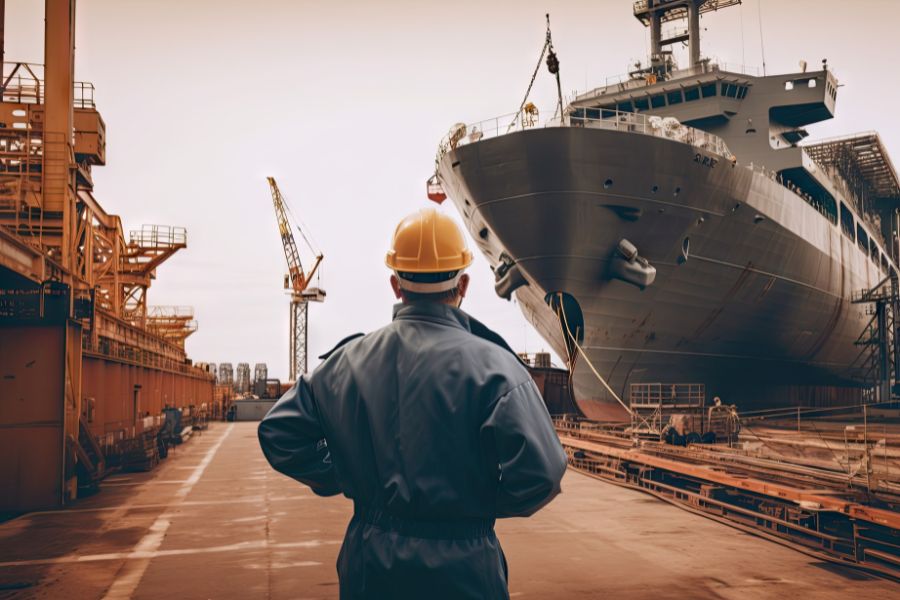
In summary, marine coatings serve as essential guardians for safeguarding marine assets against the corrosive forces of nature, fouling organisms, and environmental degradation. At Corcon – Institute of Corrosion, we emphasize the adherence to rigorous specifications, the implementation of efficient inspection protocols, and the deployment of customized coatings tailored to diverse marine applications. Through these measures, we uphold the integrity and longevity of marine infrastructure, ensuring its sustained performance and environmental responsibility. Our commitment to ongoing research and innovation in marine coating technology is paramount, as it drives the evolution of coatings with enhanced resilience and eco-friendliness. By preserving marine ecosystems and facilitating the smooth operations of maritime industries, Corcon contributes to a sustainable and prosperous future for all stakeholders involved.
Frequently Asked Questions (FAQ)
1. What are marine coatings?
Marine coatings are specialized protective layers applied to various marine structures and assets to safeguard them against corrosion, fouling, and other forms of degradation caused by exposure to seawater and environmental factors.
2. Why are marine coatings important?
Marine coatings play a crucial role in preserving the integrity and longevity of marine assets by shielding them from corrosion, fouling, and abrasion. They help extend the service life of vessels, offshore platforms, bridges, piers, and other marine structures, reducing maintenance costs and ensuring safety.
3. How do marine coatings prevent corrosion?
Marine coatings form a protective barrier between the substrate and corrosive elements present in seawater, inhibiting the penetration of moisture and corrosive agents. By preventing direct contact between metal substrates and corrosive agents, these coatings effectively mitigate the risk of corrosion.
4. What are the key performance criteria for selecting marine coatings?
Key performance criteria for selecting marine coatings include corrosion resistance, adhesion, abrasion resistance, UV resistance, chemical resistance, flexibility, and fouling resistance. These criteria ensure optimal protection and durability in various marine environments.
5. How are marine coatings applied and inspected?
Marine coatings are applied using various methods such as spray, brush, or roller, depending on the project requirements and site conditions. Inspection techniques include visual inspection, thickness measurement, adhesion testing, and environmental testing to ensure proper application and adherence to standards.
Image Reference: Freepik
Disclaimer: All trademarks, logos, and brand names are the property of their respective owners. All company, product, and service names used in this website are for identification purposes only. Use of these names, trademarks, and brands does not imply endorsement.
